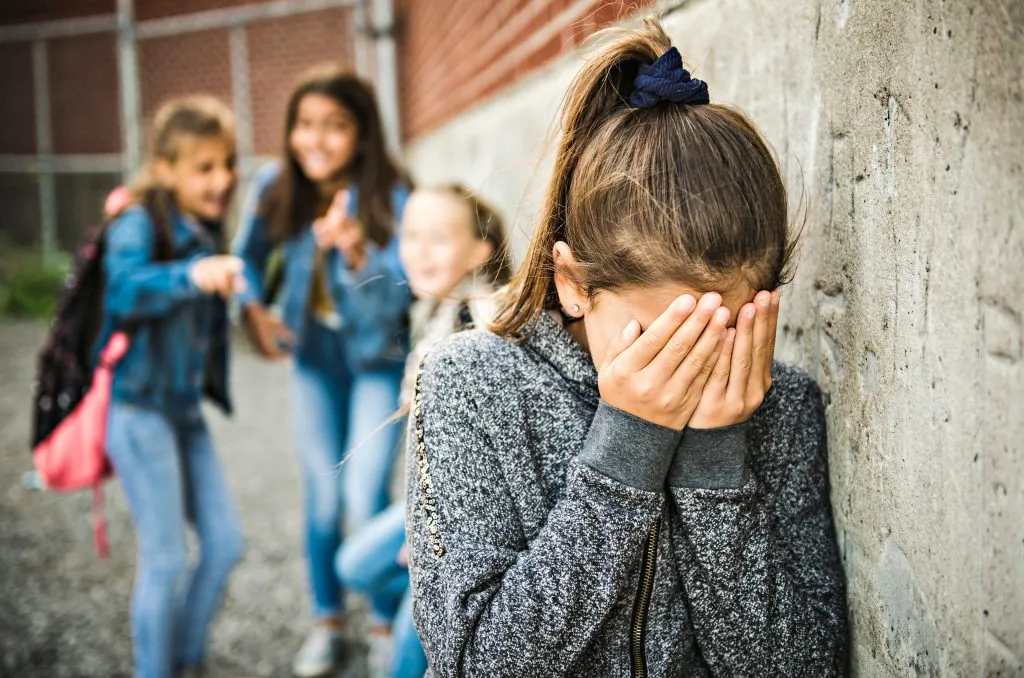Do you want to know the potential signs your child is being bullied at school? Keep reading to find out the potential signs your child is being bullied at school.

Bullying is a concerning issue that many children may face during their school years. As a parent, it’s crucial to be vigilant and aware of potential signs that your child might be experiencing bullying.
This guide outlines the common indicators that may suggest your child is being bullied and offers insights on how to address the situation.
Signs Your Child is Being Bullied

Here are potential signs your child is being bullied at school:
1. Your Child Frequently Comes Home With Unexplained Injuries or Damage Belongings
If your child frequently comes home with unexplained injuries, torn clothing, or damaged belongings, it could be a sign of physical bullying. Also, pay attention to recurring patterns and inquire about any incidents.
Physical bullying often leaves visible marks, and addressing these signs promptly is crucial for understanding the extent of the issue.
2. Your Child Exhibit Sudden Withdrawal or Isolation
A noticeable change in your child’s social behavior, such as withdrawing from friends or avoiding social activities, may indicate emotional or verbal bullying.
If your once-social child becomes isolated, it’s essential to explore the reasons behind this shift.
Engaging in open conversations with your child about their feelings and experiences can provide valuable insights.
3. You Notice a Decline in Academic Performance
Bullying can take a toll on a child’s emotional well-being, impacting their academic performance.
If you notice a sudden decline in grades or a reluctance to attend school, it may be linked to the stress of bullying.
Addressing the academic aspect is crucial, but it’s equally important to delve into the emotional factors contributing to the decline.
4. You Notice Changes in Your Child’s Sleeping or Eating Habits
Bullying can cause anxiety and stress, leading to changes in sleep or eating patterns. Pay attention to any significant alterations in your child’s routine, as these may be signs of emotional distress.
Also, establishing a supportive and open environment at home can encourage your child to share their feelings and experiences.
5. Your Kid Frequently Complains of Physical Ailments
Children who experience bullying may often complain of headaches, stomachaches, or other physical ailments.
Furthermore, these complaints might be an indirect way of expressing emotional distress resulting from bullying.
Consulting with a healthcare professional can help rule out underlying health issues and address the emotional aspects of the complaints.
6. Your Kid May Lose Personal Items After Coming Back From School
Bullies may target a child’s belongings, leading to a loss of personal items such as books, school supplies, or money.
Be attentive to any unusual disappearance of your child’s possessions. Encourage your child to communicate about these incidents, and work collaboratively with school authorities to address the thefts and prevent future occurrences.
7. Your Kid Regularly Feels Reluctant to Attend School
If your child expresses a strong reluctance to go to school, it’s crucial to investigate the reasons behind this resistance.
Furthermore, bullying can create an environment where a child feels unsafe and unwelcome.
Establishing open communication channels with your child’s teachers and school staff can provide additional insights and support in addressing the issue.
8. Your Child Experiences Sudden Changes in Friendships
Bullying can impact a child’s relationships. If your child experiences a sudden change in friendships or displays hesitation about socializing, it may be a consequence of bullying dynamics.
Encourage your child to share their feelings about friendships and work together to foster positive social interactions.
9. Your Child Exhibits Sudden Emotional Outbursts or Mood Swings
Children facing bullying may exhibit sudden emotional outbursts, mood swings, or increased irritability. These behavioral changes can be indicative of the stress and emotional turmoil caused by bullying.
Furthermore, creating a safe space for your child to express their emotions and providing emotional support is essential during these challenging times.
10. Your Child Avoids Specific Places or Routes
If your child actively avoids certain places or takes alternative routes to school to escape potential bullying situations, it suggests a conscious effort to navigate away from distressing encounters.
Understanding these avoidance behaviors and addressing the underlying concerns can contribute to building resilience in your child.
In conclusion, as a parent, staying vigilant to signs of bullying is crucial for your child’s well-being.
By addressing the issue promptly and collaboratively with school authorities, you can create a supportive environment that fosters resilience in your child.
Open communication, empathy, and proactive intervention are key elements in ensuring your child’s safety and emotional health.
Related Searches:
